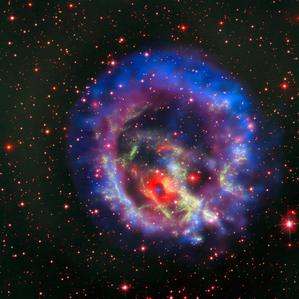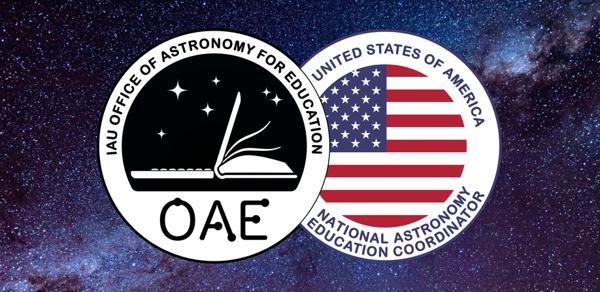Glossary term: 中子星
Description: 中子星是一个非常密集和紧凑的恒星残骸,形成于大质量恒星核心的坍塌。质量约为八倍太阳质量或更多的恒星在其恒星演化的最后,核心会坍塌,触发超新星爆炸。坍塌的核心密度大于大多数原子核,并主要由中子组成。这一点的原因是,在大质量恒星极热和极密的坍塌核心中,质子和电子结合形成中子。中子星的下限质量为1.4倍太阳质量,上限约为3倍太阳质量——超过这个质量,物体将坍塌为黑洞。高度磁化的中子星被称为磁星。已知的绝大多数中子星以射电脉冲星的形式被观测到。
Related Terms:
See this term in other languages
Term and definition status: The original definition of this term in English have been approved by a research astronomer and a teacher The translation of this term and its definition is still awaiting approval
The OAE Multilingual Glossary is a project of the IAU Office of Astronomy for Education (OAE) in collaboration with the IAU Office of Astronomy Outreach (OAO). The terms and definitions were chosen, written and reviewed by a collective effort from the OAE, the OAE Centers and Nodes, the OAE National Astronomy Education Coordinators (NAECs) and other volunteers. You can find a full list of credits here. All glossary terms and their definitions are released under a Creative Commons CC BY-4.0 license and should be credited to "IAU OAE".
If you notice a factual or translation error in this glossary term or definition then please get in touch.
Related Media
大质量恒星的死亡
Credit: ESO/NASA, ESA and Hubble Heritage Team (STScI/AURA)/F.Vogt et al. credit link
License: CC-BY-4.0 Creative Commons 署名 4.0 国际 (CC BY 4.0) icons









